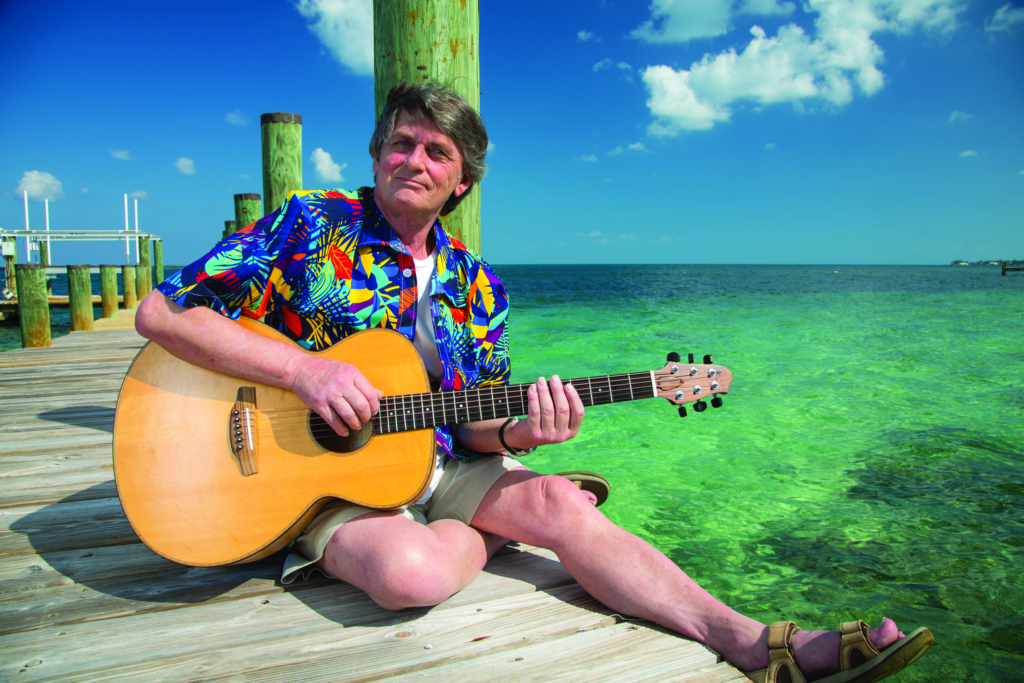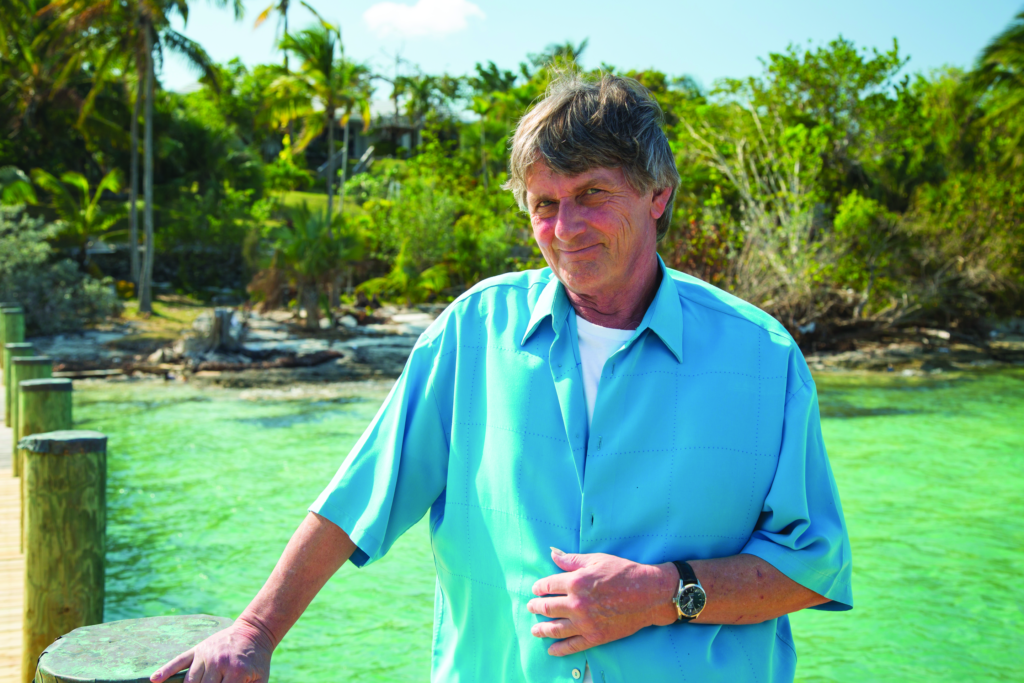Mike Oldfield talks about his career, ups and downs, hurricanes, personal demons, how he made the music industry aware of Napster, how the London Olympics vindicated him and his last album “Return to Ommadawn.” And what has Jean-Michel Jarre got to do with Oldfield’s teeth? Turns out, quite a bit!
In my work as a freelance journalist and photographer, I’m lucky enough to meet with and/or interview a lot of famous (and some slightly famous) musicians, scientists, models and artists. I especially like to talk with people who have made a very important impact in my life.
One of those people is Mike Oldfield. In the 80s he was every now and then releasing hit singles, which kept him on my radar, but it was 1990s Amarok, which consisted on one (1!) track lasting one hour and four seconds that got me hooked.
He started out with his sister Sally Oldfield in a folk band called Sallyangie when he was only 15. He then went on tour and record with musicians like Kevin Ayers.
In 1973, at the age of 19 he composed and released the album “Tubular Bells.” It was the very first release on a newly started company, Virgin Records, and was the start of Richard Branson’s fledgling Virgin empire, now including Virgin Airlines and a world spanning business.
The album went on to sell 15 million copies and has since spawned two sequels and a re-recording, as well as having been sampled and copied by hundreds of artists.
In the decades that followed he became a touring artist, then stopped touring, dabbled with computer generated music videos, did computer games and released over 20 albums. In 2017 he released a sequel to his third album, “Ommadawn,” called “Return to Ommadawn.” The original practically invented World Music, by combining African musicians with Irish and Celtic music, as well as pop and rock. In short: Just as unique as the artist himself.
Just a few days before “Return to Ommadawn” was released in January 2017, I got a lengthy chat with Mike Oldfield. Me in a studio in Molde, Norway, with rain pounding against the windows. Him in his studio in the Bahamas, with the sun shining through his windows. The original article was published in Norwegian by Dagbladet. But here you have a very expanded version, in English. Enjoy. And please let me know in the comments section what you think.
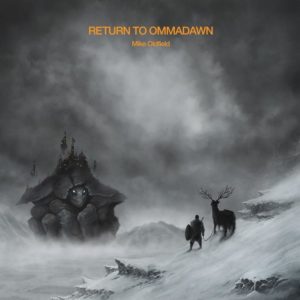 – First of all, I got a preview copy of the “Return to Ommadawn” album a few days ago, and I’ve listened to it constantly. It’s a very beautiful album, I have to congratulate you.
– First of all, I got a preview copy of the “Return to Ommadawn” album a few days ago, and I’ve listened to it constantly. It’s a very beautiful album, I have to congratulate you.
– Aww! Thank you. That’s lovely to hear.
It’s very acoustic based, compared to the music you did in the 90s and 2000s, isn’t it?
Yes, and that was on purpose. Because the original “Ommadawn” was very acoustic. I did use some keyboards on it. Among them a very early string machine, which was an Arp Solina. But the sound was dominated by acoustic instruments like guitar and harp, African drums, electric guitar and so on. I tried to choose the same instruments for “Return to Ommadawn”.
– Did you play everything yourself this time?
– Yes, everything.
– Even the flutes?
– Yes, but I can’t play the recorder very well, and there is a recorder on the original. However, I can play the penny whistle pretty well, so it was a good substitute.
– Technology finally caught up with me
– Was it a spontaneous album to make, or did you use bits and pieces you have collected through the years?
– It was very spontaneous. The first job was to assemble all the instruments I was going to use. And I used a metronome to get the rhythm going. Then I started off with the bodhran, an Irish drum, and started to see where that lead. And day by day, I added more and more. First a guitar part. Then another. So, I continued to add layers for 11 months until it was finished.
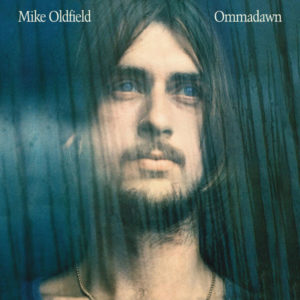 – This was a sequel to “Ommadawn,” which was created in 1974 and 1975. What is the main difference between creating music then and creating music now?
– This was a sequel to “Ommadawn,” which was created in 1974 and 1975. What is the main difference between creating music then and creating music now?
– Not much, really. I had to wait for technology to catch up with me, and it did about five years ago. The computer programs that came then made it easier to have a true home studio, and finally the sound you recorded digitally started sounding just as good as the old reel-to-reel tape that we used back then.
Skinny guys shouting
In the late 70s the old rock heroes from earlier that decade started to become looked upon as dinosaurs and boring old farts. The punk music movement had arrived, and Oldfield felt it in full force.
– In the late 70s my music went out fashion. That’s when the people I call “the skinny guys shouting music” became popular. And my music was looked upon as old fashioned and so on. In order to survive, because I had financial troubles as well, I started touring.
After touring with a full orchestra, and lost a ton of money, Oldfield realised that he had to streamline his touring band.
– I whittled the band down to seven musicians. I also changed my music into becoming more mainstream.
Through the 80s Oldfield therefore made a series of more song based albums. He had several hit singles, like Moonlight Shadow, which was huge all over Europe in the summer of 1983.
Vindicated at London Olympics
Oldfield kept going through the 90s and 2000s with albums that covered everything from Irish music to classical music, pop and even techno. He also did two sequels to Tubular Bells. But all the time he was feeling frowned upon by a snobbish music press. Then the summer Olympics came to London in 2012. And Mike Oldfield was asked by film director Danny Boyle, who was in charge of the opening ceremony, to play during the tribute to the National Health Service.
– That made me feel validated, because I got to play to so many people. In addition, some very complimentary things were written about both me and my music. And that made me think it was time to get back to my roots from the 70s and make album length instrumentals again, that were hand played.
– I was going to ask you about the Olympics. I remember when I saw the opening ceremony, I saw you on stage, and I was so happy for you. Because I know all the shit…
*sound of Mike snorting on the other end*
… – the British press has flung in your direction through the years. That must have been a glorious feeling of vindication?
– Ha ha. Exactly! Yes, it was a wonderful feeling. Nothing can best that. It was the number one gig on planet Earth for any musician. And it was a lot of people trying to get in on it. I was doing some sessions over Skype with musicians in Los Angeles. And there were people coming into the studio all the time going “can I get it on it, can I get it on it, it is the Olympics, oh my god” and so on. Ha ha. It was like winning a prize in the lotto. It was fantastic.
Oldfield describes what a wonderful evening the whole thing was.
– Everybody, all the performers and musicians, even the audience, they gave it their very best. Everybody was pulling in the same direction to make it great. I think when British people get down to it, they can do fantastic things. Unfortunately, the British mentality is more about being rude, bored and nasty. But when it really comes down to something important, they can still do it really well. It’s nice to see that, because I am still English at heart.
He is not staying in Britain, though. For quite a few years, the tropical island paradise has been his home for semiretirement, and he is reluctant to leave the islands. Even for short trips.
– Yeah, funny enough, Bahamas used to be British. But they still have a lot of the old traditions of Great Britain. It reminds me when I was growing up in a town called Reading, 20 miles away from London. Children go to school in their uniforms, people get dressed and go to church on Sundays, there are police on the streets and such things. Just like Britain in the 50s. It’s very lovely.
Hurricanes
– The weather must be better than Britain, though?
– Ahh! Yes. Apart from the occasional hurricane, the weather is fantastic. Actually, just when I was putting the finishing touches to Return to Ommadawn, we got a direct hit from the hurricane Mathew. That was a very, very powerful storm, and it did a lot of damage. We were without main power for over three weeks. They had to re-wire the powerlines for the entire island.
Oldfield did have an emergency generator, and he says he became an expert in generator maintenance.
– The album was actually delivered to the record company via a little satellite dish on my roof. Via this satellite we have a very slow backup internet connection, so it took me about 24 hours to send the entire album via that connection. There was no cable, no DSL or anything.
– I got this image in my head now with you on the studio floor, with emergency powers, recording, surrounded by candles or something similar.
– Ha ha. Yeah, it was kinda like that.
Tubular Bells app
 As mentioned earlier in the article, Oldfield has done a lot of musical styles. Pop, classical, Irish, World Music, ambient, reggae, ambient, techno, rock and the end is listless. I ask him if there’s a genre of music he hasn’t done yet.
As mentioned earlier in the article, Oldfield has done a lot of musical styles. Pop, classical, Irish, World Music, ambient, reggae, ambient, techno, rock and the end is listless. I ask him if there’s a genre of music he hasn’t done yet.
– Ha ha. No, there isn’t much I haven’t tried, is there? Can you think of anything? Maybe I could try Bollywood, or something like that. Ha ha. I don’t know. I’ve even done the very ancient music from Bali on my album “Islands.” And I’ve done classical, folk, rock…
– Very often when you listen to an album by an artist, you think “oh, this sounds like the previous album by this artist.” Putting on an Oldfield album, you know you are going to get something vastly different from your previous album. Is this a conscious decision on your part?
– I do think through before making an album about what I want to do, what kind of instruments I’m going to use and so on. I’m working at the moment on a new music player. It’s going to be an advanced music player, an app. I see it as an extension of the old phonograph player, with the huge speaker, like the one the dog is listening to. It’s about time we had a new player.
This new player is going to be based on Tubular Bells 4, Oldfield tells me. So, yet another variation of that classical album, which celebrates it’s 45th(!) anniversary in 2018, is on its way. However, this player will offer even more.
– You will be presented the music via multitrack, so you will be able to create your own mix, if you want to. And it’s going to have a virtual reality section, where you can go into these three-dimensional worlds. Here you will be able to explore beautiful environments while listening to music. The music will change, depending on where you go and what you do.
– Is this going to be a mobile app, then?
– Initially it’s going to be made for desktop PCs. Maybe we will do a stripped down version for mobile. I’m also interested in seeing what happens with those Virtual Reality headsets. If they catch on, we might support them as well. Nearly everybody has a desktop computer, these days, haven’t they?
When I describe Tubular Bells 4 as a multimedia package, Oldfield disagrees with me.
– That sounds like something you buy in the supermarket. No, this will be something new and a different experience. I did some games in the late 90s and early 2000s that were released with a couple of my albums. They were great fun to make, but they cost me a lot of money, and they didn’t sell very well, he he. But they still work, and you can get your hands on them online. Which is nice. Some people still play them. But of course, the quality in graphics have improved considerably since then. Even a simple laptop can today do wonderful things you could only dream about in those days. You’d need those big Silicon Graphics machines for that back then.
Jean-Michel Jarre and the dentist
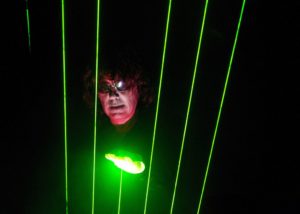 Oldfield says CD sales have fallen so much that you have to find other ways to get your music out. However, he is very happy about the rise in vinyl sales.
Oldfield says CD sales have fallen so much that you have to find other ways to get your music out. However, he is very happy about the rise in vinyl sales.
– That’s wonderful! It’s a lovely thing having those vinyl discs.
“Return to Ommadawn” is divided into a Part 1 and a Part 2, just like in the old days. Did you think vinyl when you composed it?
– Absolutely. I still think of two sides of a vinyl disc when I make music. It was a wonderful ritual doing two sides of music. And then going to see the engineer cutting the master of the vinyl disc. We lost that in the world of going from the studio and then straight to digital download. Things are looking a up a little bit for the music industry these days, I must say.
– I interviewed Jean-Michel Jarre a few months back. And like you, he also thought of two sides of a vinyl disc doing his latest album. And he also did a sequel, Oxygene 3.
– Yes!
– He also said that nobody does sequels in music, except for “me and Mike Oldfield.”
– Ha ha! I’ll tell you a story about him. I got a link from someone to a live chat he was doing online on social media. So, I followed the link, because I wanted to look in. This was about his collaborations albums that he did [Electronica 1 and 2 – Hogne]. And someone asked whether he would consider working with me. He replied that he loved my music, but he thought of me as more of an acoustic musician. And I went: “Hmm. If he thinks of me as an acoustic musician, maybe I should make an acoustic album?” That’s one of the reasons I made “Return to Ommadawn.” So, thank you, Mr. Jarre!
– That’s a great story. And he told me as well he liked your music. Do you like his music?
– Oh yes! A funny story about that: My very first introduction to the very first “Oxygene.” I was about to go on tour for the very first time, and my tour manager said that I really needed to go and visit the dentist before the tour. Because some of my teeth were out of alignment.
So, Oldfield went off to see an expert dentist in Harley Street.
– And he said he could put a cap on it. So, I went to the laboratory where they were making the caps. And they were playing this music, which sounded weird, but really nice. And I was enthralled by it. They told me that this was by this French guy, and that the music was called “Oxygene.” So, there they were, making my new teeth, and listening to Jean-Michel Jarre. This slightly out of this world music. True story.
– That’s funny!
– And I still got the same caps on my teeth, to this day, ha ha! 40 years later.
Mike Oldfield and Jean-Michel Jarre’s music have always been compared as being similar, even though there is nothing similar about what they do, other than it being instrumental. Vangelis is also often thrown into that comparison. I ask Oldfield why he thinks that is.
– You’re right. The only common denominator is that it is instrumental, or most of it. None of us have really used anyone as frontmen. And the musician has been more a producer or technician, rather than a performer. And since we all do most of the playing composing and producing ourselves, they maybe see some similarities between us in that way. And of course, not many other artists have been so consistently successful with instrumental music, as those three.
Return to the 70s
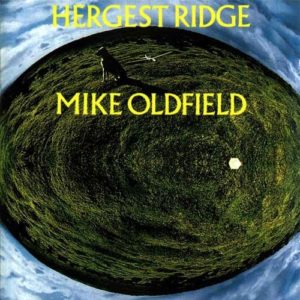 Return to Ommadawn is a sequel to Mike Oldfield’s third album. However, listening to it you also hear a lot of traces from his second album, “Hergest Ridge”. I ask him if he agrees with that.
Return to Ommadawn is a sequel to Mike Oldfield’s third album. However, listening to it you also hear a lot of traces from his second album, “Hergest Ridge”. I ask him if he agrees with that.
– Yes, that was on purpose, really. I am very active on social media, and I can see what fans write about my music. And I was very surprised with how popular both “Hergest Ridge” and “Ommadawn” were. It seemed to me a lot of people actually preferred “Hergest Ridge” and “Ommadawn” to the original Tubular Bells, which surprised me a lot.
So, Oldfield went to work with the mindset that he was back in the mid 70s, composing. The challenge was to find the right way to start.
– Tubular Bells start with the tinkling piano, for example. I thought I could start Return to Ommadawn with a folk melody. But I decided to set the scene by making the opening very atmospheric and use the same kind of beginning as I did with Hergest Ridge.
– Paul Stanley of Kiss says in interviews that you have a lifetime to prepare your first album, and for the second you have six months. Was that how you felt when you started working on the follow up “Hergest Ridge” after having an unbelievably popular first album?
– Tubular Bells took my whole life to write and get recorded. Just the part of getting into a recording studio took years. Two or three years before this, I was taking my demos around to all the record companies. And they threw me out, like I was crazy. Because my music was instrumental, it had no vocals and no drums and so on. It didn’t help that I was a young guy with long hair and a beard, not looking in any way like a star, you know.
Is being miserable a prerequisite for being a composer?
In what Oldfield describes as pure luck, he bumped into some guys, including the now world famous billionaire, Richard Branson, who were putting together a new company called Virgin.
– They had a recording studio in this old mansion, called The Manor. And I got my foot in there by being the rhythm and bass guitarist for various obscure artists. And these people believed in me and gave me a chance to prove myself. I couldn’t believe my luck. But it took me so long to get there that after “Tubular Bells,” I didn’t really have another album in me.
This was difficult for the people around Oldfield to understand.
– I was always followed around by these people, especially Richard Branson, going “where is the new album”, he he. “We’ve made millions from the first one, make another one! Quick” Ha ha. So, I was sort of pressured into making it. This made me have a difficult relationship with “Hergest Ridge” for some time, but in hindsight, upon listening to it again, I think parts of it are really beautiful.
In 2013 BBC made a wonderful documentary about the making of Tubular Bells. The album was produced by Tom Newman, who also has produced several of other Mike Oldfield’s albums through the years. Some fans even say that Newman is always there when Oldfield makes his best music. In the documentary, Newmans says that Oldfield always makes his best music when he is miserable. I asked Oldfield if he would echo that sentiment.
– Hmmm. *long pause* It goes back to the time when I was a teenager. I was very unsure of myself. Which of course is quite normal for a teenager. But I felt it very deeply. I was having what I’ve later learned was an “existential crisis,” it’s what the psychologists call it. It used to really frighten me. So, music was a world on its own to me, where I had control and understanding. And every instrument was like a character that its own voice. That made music so real to me. I also saw how much power and influence music can have on people.
In the past four years Oldfield not only lost his oldest son, he also got divorced. I therefore ask him if those demons were lurking in the background when creating “Return to Ommadawn” as well.
– I wouldn’t call them demons. But I’ve been through four very difficult years. There was huge tragedy in the family and I had legal problems, personal problems and financial problems. Record sales are nothing like they used to be, you know. So, I guess I kind of retreated into this world of music again.
Oldfield underlines that he’s not unique in that regards.
– A lot of artists do their best work when they are under pressure from other things. Because you can retreat into this safe world, where you know exactly what’s going on. In the past few years I’ve seen the darkest side of life, and the darkest side of human nature. And none of that exist in my musical world, you see?
The heritage of Napster
– You mentioned low record sales. Going back to Jean-Michel Jarre again, who is currently the president of CISAC (organisation that works for the rights of artists), he said that if artists aren’t properly paid for their work from digital and streaming services, we will not get a young generation of new artists who are able to make a living out of musical career. What is your take on that?
– He is absolutely right! It all began with Napster in the early 2000s. I had a colleague who alerted me to Napster. So, I informed my lawyer about it, and he informed my record company. The following week it was on the frontpage of Music Week. It became easy for anybody to listen to anything for free. As far as I understand it, streaming services pay a blanket fee to the record company to be able to play all of their music, but very little of that money comes back to the artists on the lower levels. If an artist gets million of plays, I guess there will be some sort of kickback. But if you get a few thousands, you get nothing. So, it’s absolutely right, it will be impossible to make a living out of recording music. Touring will be the only way to make money, unless the artists and record companies are able to sort things out.
As mentioned above, Mike Oldfield has himself made several computer games. And he says that the music industry could learn a thing or two from the gaming industry.
– If you have a computer game, it’s very difficult to copy it or have people putting it online for free. I think maybe the music industry should look at their business model and offer the music in protected, but user friendly, online services. So that when someone buys your product, you get your reasonable share and people can start making money again.
– Modern music is like porridge
Which brings him over to the state of music these days.
– I think music today has become so formulised that… it’s still good music, don’t get me wrong. But it’s become so formulised that it’s like a porridge. Everybody sort of follows the same ingredients on how to make a song. And everything sounds inhumanly perfect at times. That’s why on “Return to Ommadawn,” I kept the mistakes I made during the recording of it. If I played a little bit wrong here and there, I didn’t tidy it up. Most of it was first take, just like “Tubular Bells” was. Back then we had so little time, so we just had to keep going. Back then those mistakes used to bother me.
But now, he says, he realises things actually are imperfect.
– It’s like us humans. It’s human to have flaws and imperfections. But in this day and age, we photoshop the human body in photographs. You know, they make people’s waistline thinner and smoothen the face and so on. The same has happened with music. It’s all perfect. But nobody’s perfect. In my opinion music has lost all of it’s character and individuality.
Tubular Shadow
In a lot of the world Mike Oldfield is mostly famous for Tubular Bells. In America that’s the only thing he is famous for. But in a lot of countries in Europe, he is most famous for pop songs like “Moonlight Shadow” or “To France.” In my homeland of Norway, “Crises” from 1983 is his most famous album. It was on the charts for almost a year.
– That must be kind of cool, to have different markets and not being a one trick pony?
– Ha. That’s a good point. I suppose it is kind of cool. All countries have their individuality and different cultures will like different things. In Germany, for instance, they never really liked Tubular Bells. But some of the later albums became very, very popular. It’s a bit strange, yes. But a good situation, I think.
Oldfield and Norway
In 1985, Mike Oldfield released the single “Pictures in the Dark.” The lead vocalist was Norwegian singer Anita Hegerland (herself a huge star in Germany) and Oldfield and Hegerland became a couple for the next six years. They had two children.
– We have to talk a bit about Norway, because you have a special relationship with Norway. You have kids and grandkids here, haven’t you?
– That’s right, yes. I’ve been there many times.
– Do you like it here?
– Yeah, it’s lovely.
– It’s a bit cold, though.
– Yes, but you expect that.
These days he doesn’t leave the Bahamas, and instead his children come to see him.
Touring
During his career Oldfield has worked with several guest vocalists and musicians. Some already had successful careers beforehand, while others gained a career because of working with him. But there is one in particular who I’m anxious to talk about.
– You also worked with one of my other big musical heroes, Yes vocalist Jon Anderson. Tell me a little bit about how that cooperation started.
– I can’t remember how that came about, really. The only time I met Vangelis was actually at Jon Andersons’ house. This was just as I was doing the soundtrack for the movie “The Killing Fields.” And Vangelis had won the Oscar for “Chariots of Fire.” So, I asked him about working with David Putnam and some technical stuff when it comes to scoring movies.
The cooperation between Anderson and Oldfield heralded two songs. The wonderful “In High Places” from the Crises album in 1983 and the single “Shine” from 1986.
– I think it was Jon that contacted me. He has a very unique voice, he he. And we did a couple of tracks together. We even went to the cup finals at Wembley stadium together.
It would take almost six years from the breakthrough of Tubular Bells in 1973 before Oldfield went on his first tour, the Exposed tour. After that he went into a cycle of one album a year, followed by a tour, up until 1985. Since then he has toured once, and that was in 1999.
– Now that you have started making music again, are there any plans for a new tour?
– No!
– Wow. Straight and short answer, there!
– It would be difficult to find people who play the way I do. “Return to Ommadawn” alone has several different styles of music on it. I mean, of course you could find people who can play it, but they would play their own version of it, and then it wouldn’t really be my music anymore.
And once again, we come back to the Olympics.
– The Olympic games was such a high, that I will let that be the end of my career as a live musician. Playing for a billion people… It will be impossible to top that!
